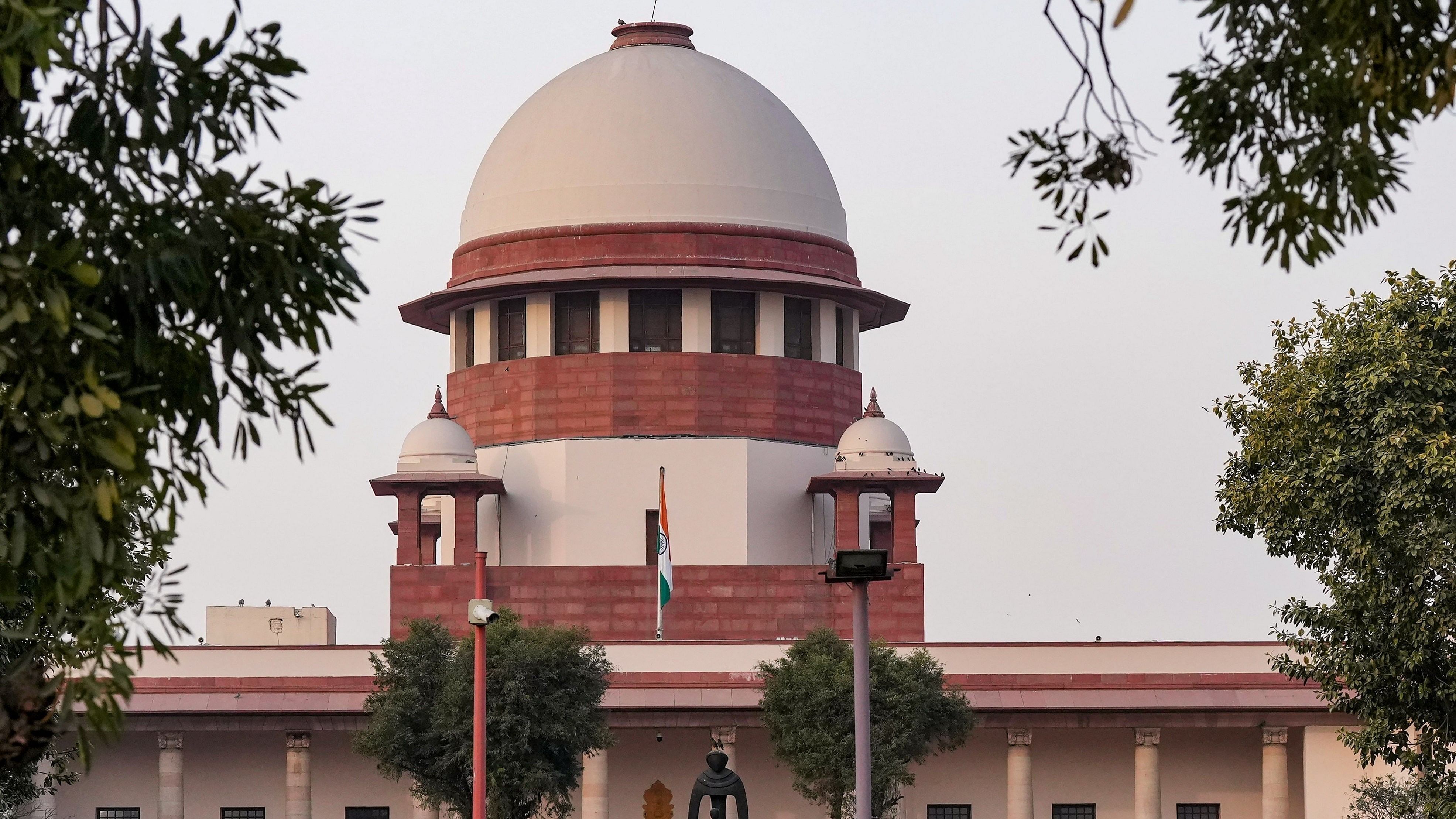
The Supreme Court of India.
Credit: PTI File Photo
New Delhi: The Supreme Court has directed the Madhya Pradesh government to pay Rs 4 lakh each to two midwives as compensation for having been retrenched after more than 10 years of service, since their work has been outsourced to an external agency.
A bench of Justices J K Maheshwari and Sanjay Karol noted a submission by advocate Dushyant Parashar on behalf of Jyoti and another midwife Resham Bai that they were engaged by Rogi Kalyan Samiti to work for about 11 years in different hospitals but have been illegally retrenched.
The state government—led by Additional Advocate General Saurabh Mishra—questioned the validity of the High Court's order of April 4, 2018 and contended that the reinstatement and continuation of the respondents may not be possible by the Samiti.
"Undisputedly, the respondents had worked for more than one decade in the hospital after engagement by the Samiti. As informed, the work which was being performed by them has now been given to outsourcing agencies," the bench said.
"In the said peculiar facts and circumstances of the case, the reinstatement of the respondents, as directed by the High Court in the judgment, would not be justified," the bench added.
In the case, the court thought it appropriate to grant retrenchment compensation of Rs 4 lakhs to each of them.
The bench directed the state government to pay the amount of compensation within eight weeks. The court also allowed the state government to recover the amount from the Samiti.
The midwives contended that they were working in the post of "Aya" with the Rogi Kalyan Samiti since 2003 on a salary of Rs 4,000 per month, but were illegally retrenched by oral order on March 31, 2014, without following the procedure of retrenchment under the Industrial Dispute Act, 1947.
They also submitted that Rogi Kalyan Samiti was still functioning in its full capacity and strength, as well as treating and taking care of the patients.
Acting on their plea, the industrial tribunal had on December 23, 2015 held that their retrenchment was illegal and further directed the state government to reinstate them.
The tribunal's order was later affirmed by the High Court. However, the Supreme Court has subsequently stayed the HC's order.
